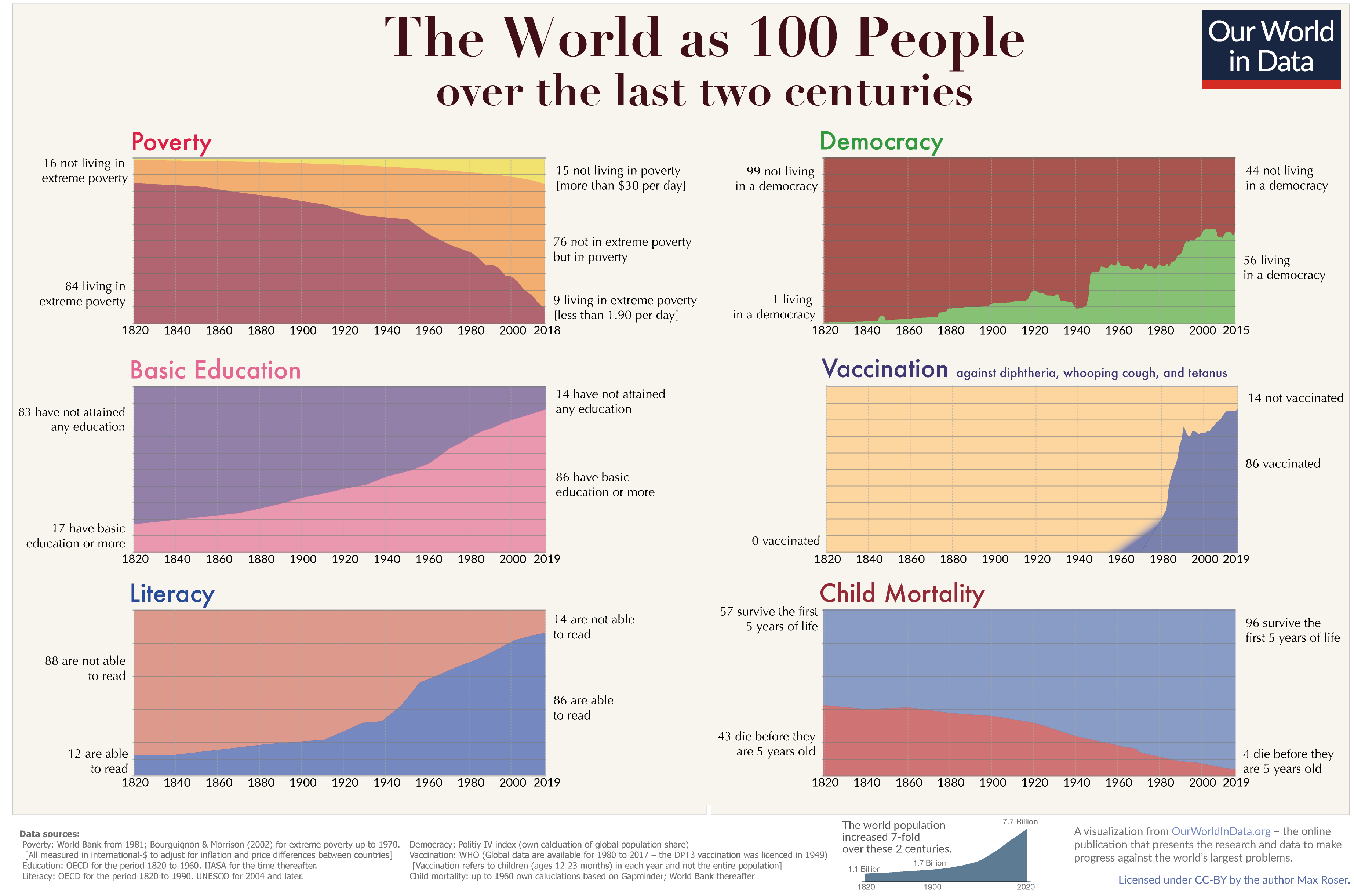This has strong dad vibes
I dunno man, my quality of life is like 10x better than my grandparents’ and 1000x better than maybe 8 generations ago, and I’d argue that’s mostly attributable to liberalised free markets.
Edit: on a slightly related topic, Lemmy appears to suffer from the same thing that often prevented Reddit from being a good place to discuss things – it hardly facilitates good faith discussion and ends up mostly an echo chamber in the long run when people downvote things simply because they disagree.
@mikeyBoy14 your grandparents generation could buy a house and send their kids to college on a single blue collar income.
My grandfather had to buy dollars from a arab student(which was illegal), ga to the capital, find a foreigner who will agree to go into the special shop(which was only for party members and foreiners to enter) to by a JVC cassette player.
Yes, progress!
My grandparents worked 16+ hour days toiling away on a farm doing hard labour for like 60 years. They ate meat and potatoes for nearly every meal because grocery chains weren’t a thing for them (and they didn’t get a fridge until the 60s anyway). A bunch of their family members died of the Spanish Flu and other illnesses that we’ve since cured. That includes both my grandma’s parents when she was maybe 10. The highest-tech thing they owned until they were in probably their 50s was a 13-inch black and white TV that got like 2 channels with its bunny ears.
If you’re saying my biggest issue is that the house I bought cost double or triple than they would have paid in inflation-adjusted terms, I’d say I came out ahead.
All of these arguments are missing the point. They’re attempts at strawman arguments, though I don’t believe it was out of malice. Technologist progress is a function mostly of population and time. Both the US and USDR made significant technological progress, so economic system is a less important (still important though!) factor.
The argument is that the modern economic system compared to our grandparents’ generation is worse. We have less buying power. We have less publicly funded welfare to act as a safety net. Workers have less bargaining power than times past. Large corporations are taking advantage of consumers and workers at huge rates.
We could have had all of the technological progress we’ve made PLUS our grandparents’ economic situation if our parents didn’t fuck everything. That’s the argument.
I just don’t think that’s supported by the data though. On virtually every measure, living conditions have improved across the globe over the last century. You can pick out specific metrics where things are worse in specific countries (housing is the most obvious example where affordability has declined), but taken as a whole I just don’t see how you can draw any other conclusion.

I don’t think you read what I wrote.
I’m arguing that living conditions have improved due to technology, not economy. Our generation’s buying power is less than that of our grandparents. I’ll pull some data for this tonight after work. It’s true in several industrialized countries
my quality of life is like 10x better than my grandparents’
yeah, fuck all those workers, many children, slaving away for pennies, often dying, in mines and factories and dumpsters to provide me with that life. Not to mention the planet itself that we all live on that is literally being destroyed for the benefit of a handful of people.
I’d argue that’s mostly attributable to liberalised free markets.
because you’re comfortable enough to ignore reality as long as that keeps that comfy-comfy status quo of yours in place.
Congratulations, you are being part of the problem.
Planned economies are grossly inefficent, a handful of planners creating chains of production results on an economy that works only on paper.
Marxism works as a critique of lassiez-faire capitalism, but as a standalone system always results in the creation od totalitarian regimes. A well regulated market economy, with publicly funded infrastructure and services has the best of both worlds.
I’ve seen the opposite in places like the UK where privatization of public utilities has lead to very high prices, poor customer service, and under investment across the board.
Planned economies are actually very efficient, look inside of Walmart and Amazon, and what you’ll see is a ton of planning, this planning isn’t based on ‘a handful of planners’, but instead based on a fuckton of data, usually collected and analysed via SAP business planning software. These companies are able to respond to trends and price goods in a way that their profits remain high, and both of these companies at least have some of their supply chains under full control for themselves.
I’m pretty sure we can create this kind of planning and enact control over it for different goals apart from profit, and there are countries where this is already being tried like here
Walmart is not the whole economy, who told you that? They are merely one of the actors





